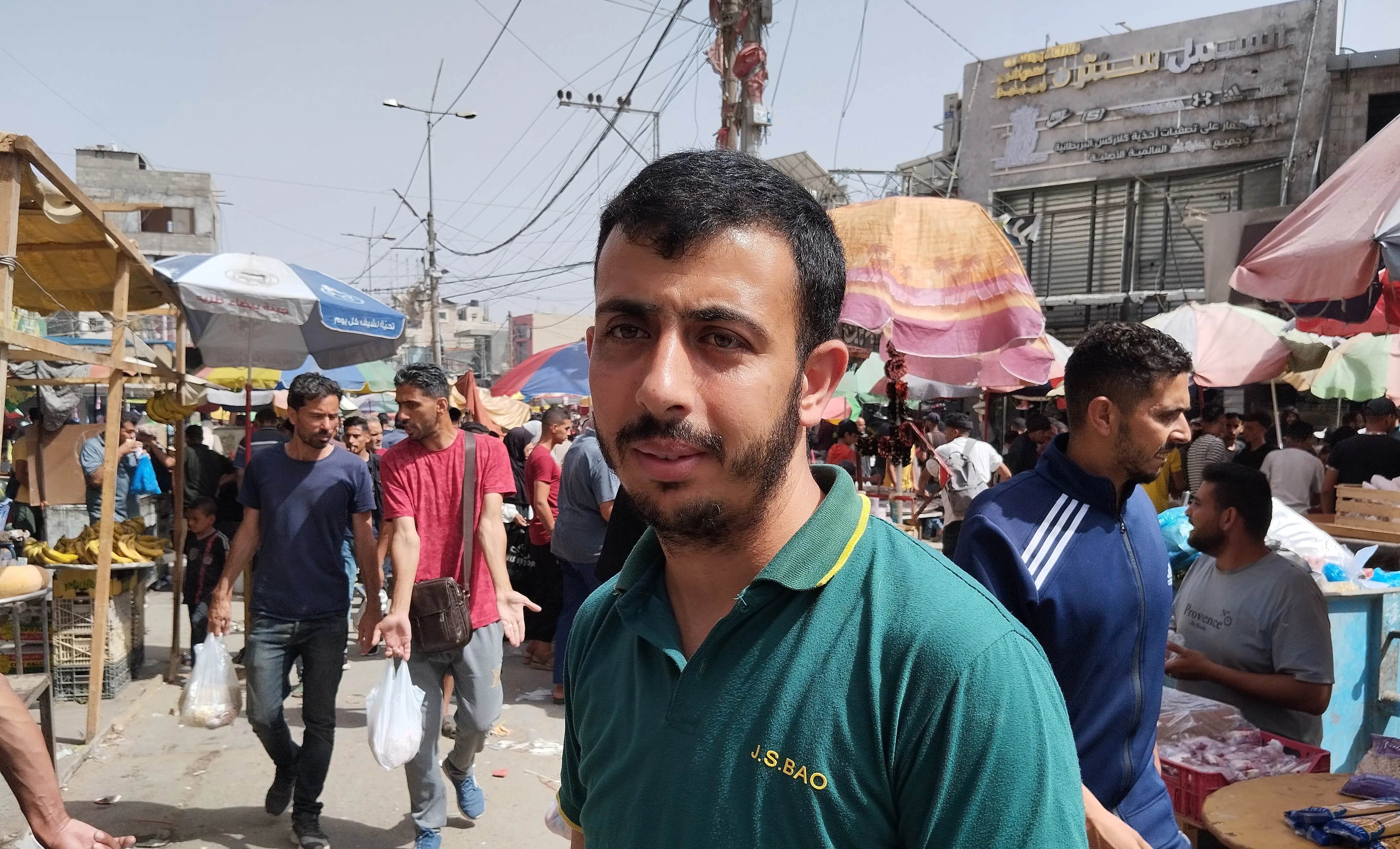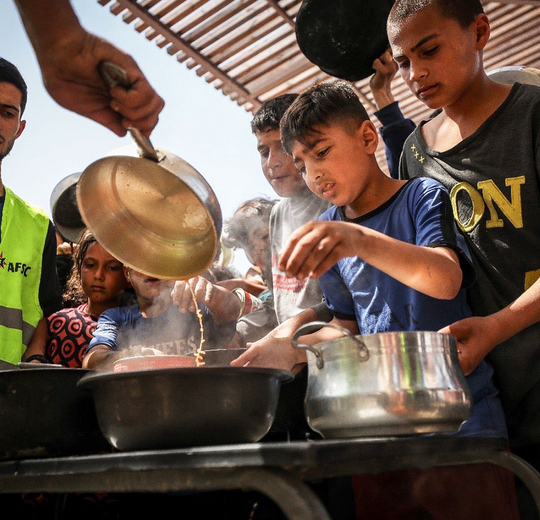My name is Tareq Fareed Al Hajj. I am 30 years old. It happened on Tuesday, March 19, 2024, the birthday of my little daughter Suwar, who turned 3 years old. I had promised her that her birthday would be special, but on her third birthday, the occupation killed her.

My name is Tareq Fareed Al Hajj. I am 30 years old.
It happened on Tuesday, 19 March 2024, the birthday of my little daughter Suwar, who turned three years old. I had promised her that her birthday would be special, but on her third birthday, the occupation killed her.
That day, my mother had asked me to let Suwar sleep at my brother Abdullah’s house because the occupation had bombed my neighbour’s house, destroying it. My mother had been staying with my brother since the first month of the war. My wife refused to let our children sleep there, saying she was afraid for our daughters and couldn’t sleep without them, promising to visit my mother in the morning with Suwar and Amar.
In the early days of the Israeli war on the Gaza Strip, the occupation bombed a house near us, resulting in the death of five- year-old Suleiman Yasser Al Hajj, Amar’s friend from kindergarten. She used to play with him all the time and constantly talked to her mother about him. She was deeply saddened by his martyrdom and entered a difficult psychological state for several days. The martyrdom of Suleiman wasn’t the only reason for Amar’s distress. The sounds of intense and continuous Israeli bombing caused fear, sleeplessness, and constant crying among my daughters. Fear gripped all of us, adults and children alike, in the Gaza Strip.
Before their deaths, my wife and I tried to calm our daughters, telling them that Suleiman was in paradise and had gone to a better place. But Amar remained sad; she wanted to play with Suleiman and go to kindergarten with him, but Suleiman was gone forever, separated from us by Israeli rockets.
We lived in an apartment in Tika Towers in the Juhar Al-Dik area in the central governorate, but the occupation bombed all the residential towers there, and I lost my home, my safe haven. This forced me to find an apartment close to my family’s home in Nuseirat camp, which I have rented since the war’s early days.
My daughters experienced displacement and death. After the occupation invaded the camps in central Gaza, my family and I fled to a relative’s home in Rafah, in the south of the Gaza Strip. The house was crowded with displaced people. Rafah’s population exceeded one and a half million due to the influx of displaced people, while its population before the war was no more than 250,000 Palestinians. My wife managed to get only two mattresses, so she and our daughters slept on them, while I slept on the street with my relatives. Despite the crowded conditions, I chose to flee to Rafah to ensure my family’s safety, preferring to sleep in the street rather than risk their lives.
After repeated Israeli airstrikes on our neighbourhood, my family and I fled to my parents’ house. However, a few days later, the occupation bombed a house adjacent to my parents’ home, causing complete destruction. My father, mother, and everyone in the house were injured. After receiving treatment at the hospital, everyone moved to my brother Abdullah’s small apartment, which consisted of only three rooms. The occupation forces stormed the eastern outskirts of Nuseirat camp, causing our family to scatter. My wife, daughter, and I fled to Rafah with my parents and some siblings. My brother Abdullah and his family fled to Deir al-Balah. The occupation forces eventually withdrew, but living in tents was extremely difficult, with diseases, epidemics, and hunger spreading among everyone.
Before the humanitarian cease-fire in November 2023, the occupation bombed the neighbourhood where my small grocery store was, destroying everything. My brother Abdullah, my father, and I lost our livelihood. My parents and siblings used to call me daily and talk to my daughters. My children were my parents’ first grandchildren, and everyone loved them. Since the beginning of the war, we’ve tried to assure them of our safety, despite our fears of being bombed. The last call I received was on Sunday evening from my mother and brother, who congratulated us on Suwar’s third birthday. They asked me to stay home and take care of my family, and I promised them I would.
I didn’t expect our apartment to be targeted because it’s in a civilian area, and all the residents are peaceful and have no connection to any Palestinian organization. Our apartment had four rooms. We chose to sleep in the two rooms on the northeast side, away from the street and adjacent to the home of the Habbash family, all of whom are peaceful civilians.
In the house, we stayed with my cousin and his wife, who were displaced after their house was bombed. They joined us for Suwar’s birthday party, and we all went to sleep. Our night ended early when the occupation bombed the Habbash family’s house at exactly 9 p.m. I found a concrete column on my wife, and stones covering both my body and hers. I was on the edge of the first-floor apartment, and I lifted the rubble off myself and began searching for my daughters.
I searched for my daughters for a long time, lifting rubble and stones with my hands. I was injured and couldn’t see well. After an hour of searching, the neighbours told me that my daughters had been taken to the hospital. My wife and I were then taken to the hospital by ambulance, but when we arrived, we didn’t find our daughters. I searched the children’s section but couldn’t find them, so we returned home to search for them again.
We searched for Amar and Suwar but couldn’t find them. After a long search, we found them far from the house. The occupation’s rockets had thrown them onto the street due to the intensity of the bombing, and they were martyred instantly. I spoke to them, but they didn’t respond. I quickly took them to the hospital, praying to God all the way that they would be alive, but when I arrived at Al-Aqsa Hospital, the doctors informed me that they had been martyred due to the bombing.
My two daughters were martyred, and my wife was injured with two fractures in her spine, nerve damage in her hands, and fractures and bruises all over her body. My eyes, face, and back were all injured and I had bruises all over my body. A piece of shrapnel lodged in my skull. The bombing took place at night and no one could be buried due to the dangerous situation and the intensified bombing. So, we wrapped my daughters’ bodies, and I placed them near the morgue’s refrigerator because there was no room left for the martyrs. The Israeli bombing of the residential neighbourhood resulted in about 25 martyrs and wounded dozens of other people. The hospital was filled with martyrs, most of whom were women and children.
The next morning, my daughters’ aunts came to the hospital to bid them farewell. After seeing them, they screamed, “‘Suwar and Amar, cover them from the cold.” My brother Abdullah, who was present, brought a blanket and covered them. Everyone loved them very much. They had done nothing wrong to deserve being killed by the occupation.
I dreamed of educating my daughters and fulfilling all their dreams. Amar wanted to become an engineer and Suwar wanted to become a dentist. But now, the occupation killed their dreams and took my daughters from me. I will not forgive the occupation or anyone who caused their deaths and deprived me of them.
My daughters Amar and Suwar were covered with a blanket to keep them from getting cold. Then my wife, their mother, and I bid them farewell from our hospital beds. The doctors treated our wounds, but the wounds in our hearts have no cure. My family buried them in the cemetery, but there wasn’t enough space, so they were buried in one grave above my grandfather Hassan, who passed away many years ago. Amar and Suwar were sisters and friends, and now they are martyrs, their blood a testament to the crimes of the occupation against the children of Gaza. My wife and I are still receiving treatment and hoping to rebuild our family. We live in regret for losing our two flowers, Amar and Suwar. We won’t be able to see them or celebrate their birthdays anymore. Their lives were stopped at only ages five and three.
Take action now
Tell Congress to demand lifesaving aid for Gaza
The humanitarian crisis in Gaza has reached catastrophic levels. Since March 2, 2025, Israel—with full support from the U.S.—has severely restricted food, water, medicine, and humanitarian aid from entering Gaza.
Contact
If you have questions or concerns, please contact us at gazaunlocked@afsc.org.


